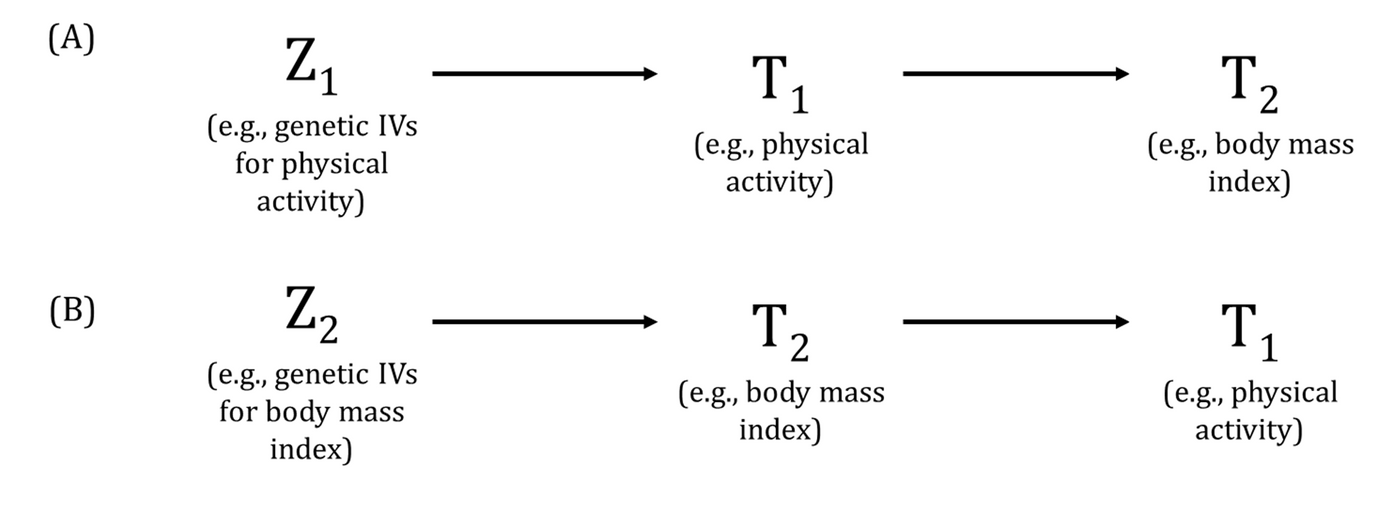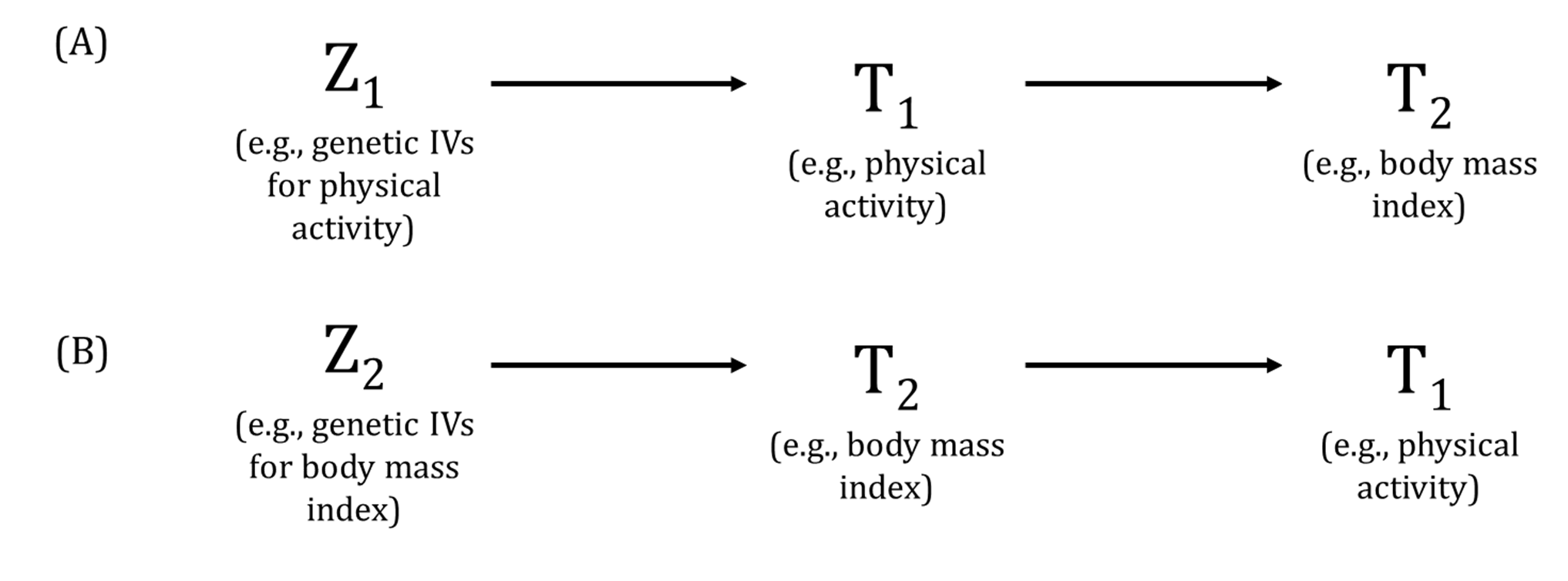An MR analysis that tries to differentiate whether factor A is a cause or a consequence of factor B or whether there is a true bidirectional causal effect between A and B.
Genetic variants for factor A (e.g., what is assumed to be the exposure) and factor B (e.g., what is assumed to be the outcome, influenced by the exposure) need to fulfil the MR assumptions. This requires genetic variants for both variables (A and B) to be used to test each of the three possibilities: A causes B; B causes A; or there is a true bidirectional causal relationship between A and B. In comparing results in both directions, caution is required to take account of differences in statistical power related to the instrumental variable (IV)-exposure association and any violations of MR assumptions.

References
- Davey Smith G, Hemani G. Mendelian randomization: genetic anchors for causal inference in epidemiological studies. Hum Mol Genet 2014; 23: R89-R98.
- Richmond RC, Davey Smith G, Ness AR, den Hoed M, McMahon G, Timpson NJ. Assessing causality in the association between child adiposity and physical activity levels: a Mendelian randomization analysis. PLoS Med 2014; 11: e1001618.
Other terms in 'Definition of MR and study designs':
- Factorial MR
- Instrumental variable (IV)
- Mendelian randomization (MR)
- MR for drug targets
- MR with binary exposures
- Multivariable MR
- One-sample MR or MR with individual-level data
- Two-sample MR or MR with summary-level data
- Two-step or Mediation MR

